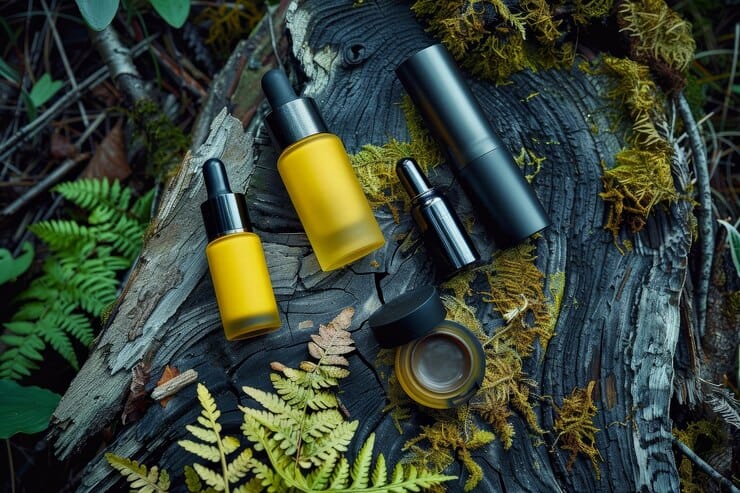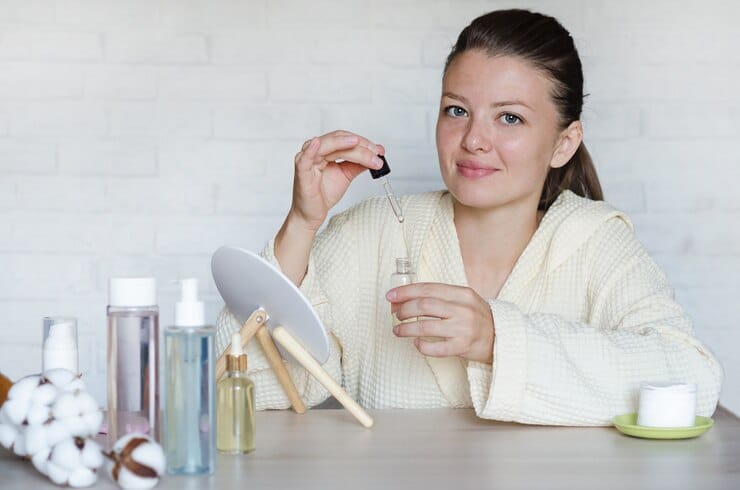Having excess oil on your skin can be a frustrating issue to deal with. Not only does it lead to a shiny complexion, but it can also contribute to clogged pores and acne breakouts. Fortunately, there are several products available that can help manage and control excess oil production.
Importance of Controlling Excess Oil

Controlling excess oil is essential for maintaining healthy and clear skin. When the skin produces too much oil, it can clog pores and lead to acne breakouts. Additionally, excessive oiliness can make the skin appear shiny and greasy, affecting one’s overall appearance and confidence.
Factors Contributing to Excess Oil Production

Genetics
Genetics play a significant role in determining how much oil your skin produces. If you have oily skin, it’s likely that one or both of your parents also have oily skin.
Hormonal Changes
Hormonal changes, such as those that occur during puberty or menstruation, can increase oil production in the skin. This is why many people experience acne breakouts during these times.
Skincare Products
Using the wrong skincare products can exacerbate oiliness. Products that are too harsh or drying can strip the skin of its natural oils, causing it to produce even more oil to compensate.
Identifying Your Skin Type

Before selecting products to control excess oil, it’s essential to identify your skin type.
Oily Skin Characteristics
- Shiny appearance, especially in the T-zone (forehead, nose, and chin)
- Enlarged pores
- Prone to acne and blackheads
Combination Skin Characteristics
- Oily T-zone
- Normal or dry cheeks
Key Ingredients to Look for in Products

When choosing products to control excess oil, look for ingredients that help regulate oil production and keep the skin balanced.
Salicylic Acid
Salicylic acid is a beta-hydroxy acid that penetrates deep into the pores to dissolve oil and exfoliate dead skin cells. It also has anti-inflammatory properties, making it effective for treating acne-prone skin.
Niacinamide
Niacinamide, also known as vitamin B3, helps regulate oil production and improves the skin’s barrier function. It also has anti-inflammatory properties, making it suitable for sensitive skin.
Clay
Clay masks are excellent for absorbing excess oil and impurities from the skin. This also eliminates blackheads. They help mattify the complexion and minimize the appearance of pores.
The Best Products for Controlling Excess Oil

Cleansers
- Oil-Free Acne Wash by Neutrogena: This cleanser contains salicylic acid to unclog pores and prevent breakouts.
- Effaclar Purifying Foaming Gel by La Roche-Posay: Formulated with zinc pidolate, this cleanser helps regulate oil production and purify the skin.
Toners
- Witch Hazel Toner by Thayers: This alcohol-free toner helps tighten pores and control oil production without drying out the skin.
- Balancing Toner by Paula’s Choice: Formulated with niacinamide and antioxidants, this toner helps balance oil production and soothe irritated skin.
Moisturizers
- Oil-Free Moisturizer SPF 30 by Cetaphil: This lightweight moisturizer hydrates the skin without clogging pores and provides broad-spectrum sun protection.
- Hydro Boost Water Gel by Neutrogena: Infused with hyaluronic acid, this gel moisturizer hydrates the skin while controlling oiliness.
Serums
- Niacinamide 10% + Zinc 1% by The Ordinary: This serum helps regulate oil production, minimize pores, and reduce redness and inflammation.
- Salicylic Acid 2% Solution by Paula’s Choice: Formulated with salicylic acid and green tea extract, this serum exfoliates the skin and prevents breakouts.
Sunscreens
- Ultra Sheer Dry-Touch Sunscreen SPF 55 by Neutrogena: This oil-free sunscreen provides broad-spectrum protection without leaving a greasy residue.
- Invisible Daily Defense Sunscreen SPF 30 by Paula’s Choice: Formulated with niacinamide and antioxidants, this sunscreen protects the skin from UV damage while controlling oiliness.
How to Incorporate Products into Your Skincare Routine

Start by cleansing your skin with a gentle cleanser twice daily. Follow up with a toner to remove any remaining impurities and balance the skin’s pH levels. Apply a serum targeted at controlling excess oil, followed by a lightweight moisturizer with SPF during the day. In the evening, use a serum again, and finish with a moisturizer suitable for your skin type.
Lifestyle Tips for Managing Oily Skin

- Wash your face twice daily with a gentle cleanser.
- Use oil-free and non-comedogenic skincare products.
- Throughout the day, try not to touch your face to avoid spreading bacteria and oil.
- During the day, use blotting sheets to absorb extra oil.
- Once or twice a week, use a clay mask as part of your skincare regimen to help manage oiliness.
Conclusion
Controlling excess oil on your skin is essential for maintaining a clear and healthy complexion. By using the right products and following a consistent skincare routine, you can effectively manage oil production and reduce the risk of acne breakouts.
FAQs
Can oily skin benefit from moisturizers?
Yes, oily skin still needs hydration, but it’s essential to choose oil-free and lightweight moisturizers.
How often should I use products targeted towards controlling oiliness?
It depends on your skin type and the specific product. Start with once daily and adjust as needed based on your skin’s response.
Are clay masks suitable for all skin types?
Clay masks can be beneficial for oily and combination skin types, but they may be too drying for dry or sensitive skin.
Can hormonal changes affect oil production in the skin?
Yes, hormonal changes, such as puberty, menstruation, and pregnancy, can increase oil production in the skin.
Is it necessary to use sunscreen if I have oily skin?
Yes, sunscreen is essential for protecting the skin from UV damage, regardless of skin type.







